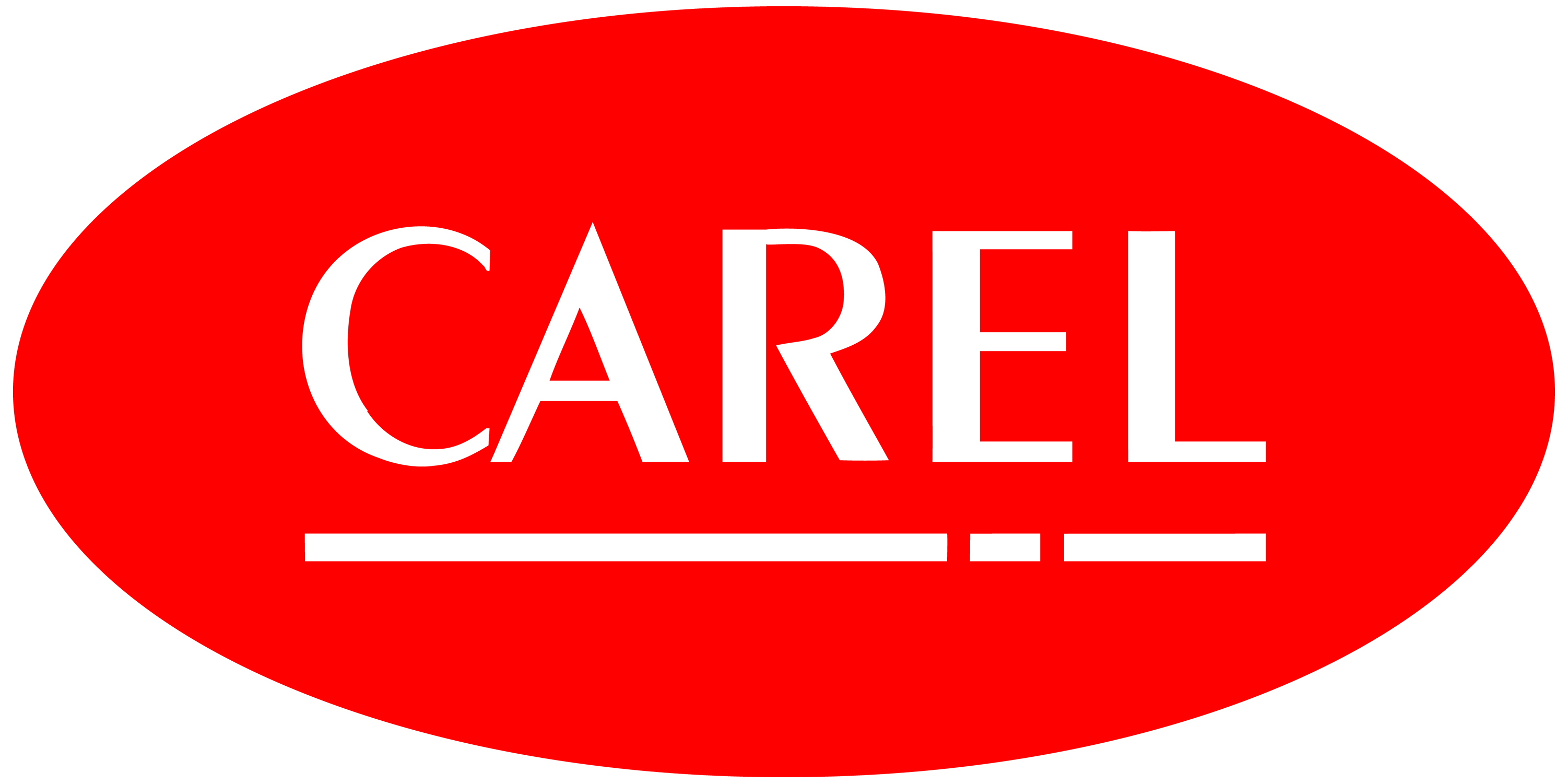Intervista Carlotta Rossi Luciani
"CAREL has always been a company with sustainability at its heart."
How long has ESG been a key topic at CAREL?
CAREL has been focusing close attention to sustainability, especially environmental sustainability, since the outset as we have always served a market that has demanded energy savings. Of course, in the 1970s, 1980s and 1990s, this was directly related to economic savings. But what in the early 2000s was "just" an economic issue also turned out to have an important impact on the environment, as saving energy means safeguarding our planet's resources. Our core business is providing our customers with solutions that consume less energy and impact less on the environment, and to achieve this we have always invested in research.
As far as social sustainability is concerned, we have always acted "silently", without ever needing to communicate our actions to the outside world. However, over the years, we have realised that it is also important to tell people what we do from a social perspective so that a culture of sustainability and a sense of responsibility and belonging to the Group can be created among our colleagues and stakeholders.
We have always tried to support our local area, from small local suppliers through to associations and institutions, and even though we have enjoyed considerable growth, we have never lost touch with our roots. CAREL has always been a company with sustainability at its heart.
What influence did the listing of the company have on ESG issues?
When we went public we realised that sustainability was an issue that would impact on the future and the success of our company.
As such, we also began to consider the necessary bureaucratic and legal aspects, for example by beginning to produce non-financial declarations. We had to change our approach because before being listed we viewed sustainability as primarily something that was supposed to be good for us and for others but wasn’t supposed to impact on our work. We soon realised that it was not a question of impacting on our work but of standardising it, as we were used to doing with all other processes. It has been a long learning curve but one that has enabled us to establish ourselves as one of the leading companies in our industry in the area of sustainability.
How has CAREL reconciled ESG issues with its mission?
We made sure that the sustainability plan was quickly integrated into our business plans. We are not an NGO, we are a company that has to make a profit. But profits must be generated sustainably and that means designing and making products that will have a positive impact on our society.
Environment: what are the main measures you have taken and what projects are you currently pursuing?
One of the macro-objectives of the first sustainability plan was to define the actions needed to minimise our impact on the environment. I can tell you about a few of the many activities outlined in the plan. I am very proud of the fact that we have begun installing photovoltaic panels in our production facilities in Italy and abroad, as per the plan, and we plan to continue with this activity in 2024. We then permanently replaced the lighting in our production facilities with very low consumption, but highly efficient LED lights. We are also working hard to analyse our supply chain and make it as sustainable as possible.
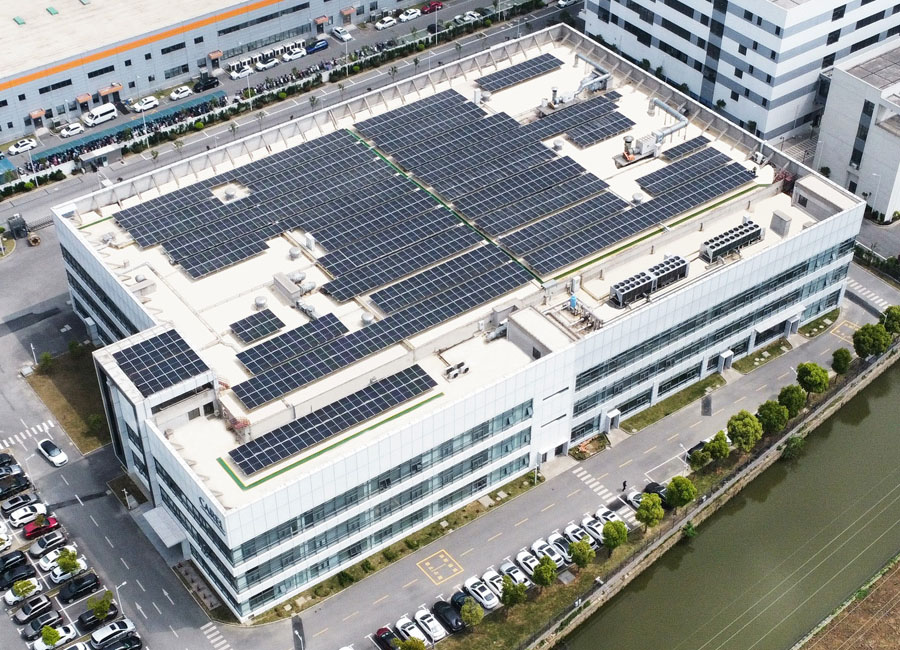
And in the social sphere?
We have mainly focused on our internal corporate welfare, improving the lives of the people that work for CAREL and optimising their work-life balance.
Working from home was initially a consequence of the pandemic but we decided to maintain this practice as we believe it can help improve employee wellbeing. Spending one or two days a week at home with the family, while still working and respecting your commitments, makes it easier to manage both your family and your work: I am thinking of mothers with children (and I say this from personal experience) or families with relatives that are elderly or need care... but also those that want to pursue their hobbies and their passions but often struggle to do so because of rigid working hours.
For many years we have also offered merit-based study grants for children of our employees and contributions towards nursery school fees. Of course there is still lots that we can do. The lean philosophy teaches us that there is never an end point, just continuous improvement. Personally, I have enjoyed combining sustainability with this philosophy that has guided us for almost twenty years.
At local community level, we have provided continuous support to some of the leading sports clubs in our area, Pallacanestro Piovese and Due Stelle di Brugine.
Another social initiative is our collaboration with “I bambini delle fate”, a Veneto-based association that promotes and helps fund activities for young people and children with autism throughout Italy. One very innovative project that I would like to mention was launched together with the Municipality of Piove di Sacco and Cooperativa Germoglio. This project involves young people at risk of dropping out of school or falling into delinquency in more positive collective activities thanks to the contribution of specialist educators. A tangible initiative in which the educators approach young people experiencing situations of social distress and involve them in an environment of mutual understanding and constructive dialogue in which they can express their needs.
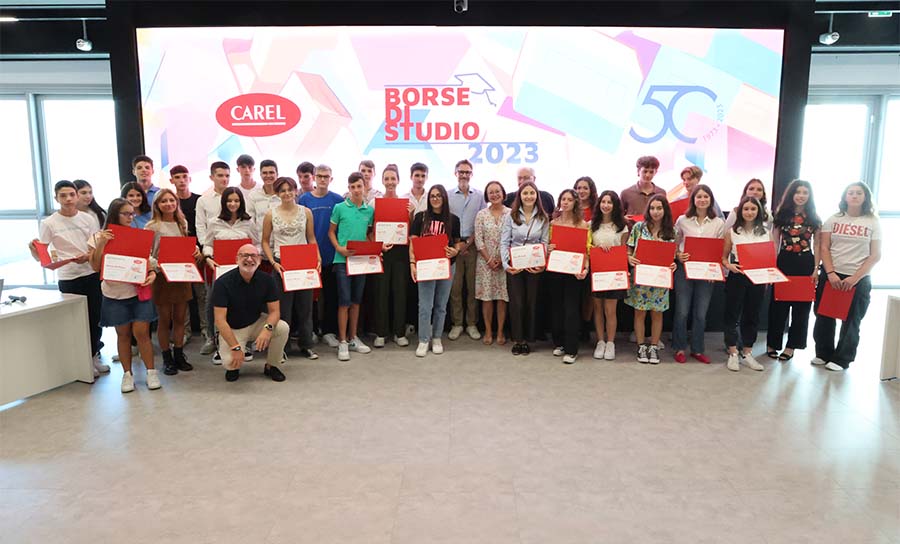
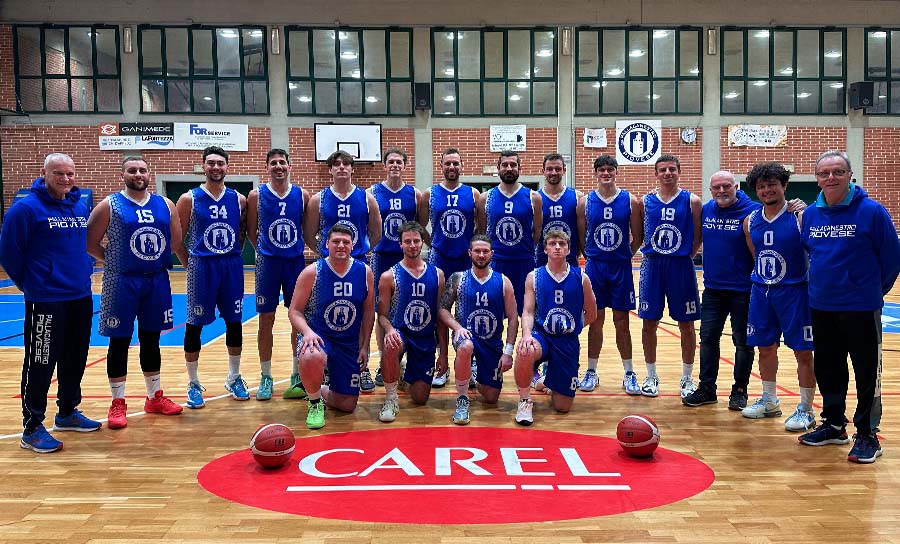
What about Governance?
In our first Sustainability Plan, 2022 was mainly dedicated to the Environment, and 2023 to social initiatives. 2024 will be the year of Governance, in which we report on our approach and describe how CAREL is governed. As required by law, we have a board of directors, a board of auditors and various committees. But I think it will be more important to explain and describe the environment in which we live and how the organisations in which we work function, and above all the work that is carried out on a daily basis but which unfortunately often goes unseen.
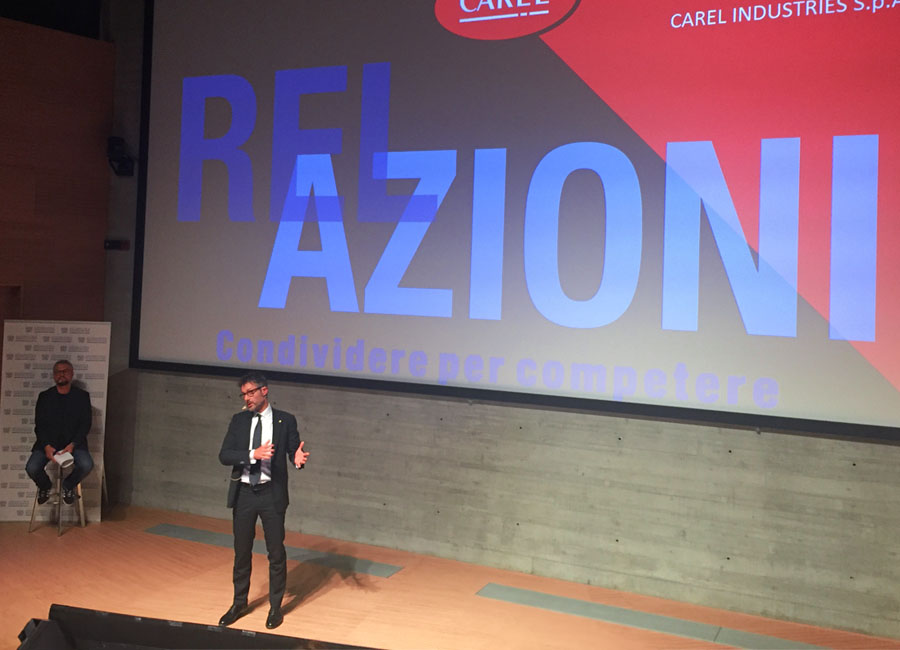
What are the different ESG ratings and what are they for? Which are the most important?
There are two types of ratings, solicited and unsolicited. The first are those that we ask for, so we are given a grade for our ESG performances.
Unsolicited ratings, meanwhile, are requested by investment funds that want to evaluate us and understand if we represent a suitable investment. I must say that when a third party rating has been requested, the investment has always gone through. This demonstrates how much interest investment funds have in these aspects and also the level of our performances.
In terms of ratings we are steadily growing, both in terms of the scores that assess "environmental" actions and those that consider social aspects. The fact that we are among the top positions shows that the sustainability path we are on is the right one.
The evaluation criteria also evolves every year so we are constantly faced with new challenges. These ratings are therefore very useful, even if fulfilling all the requirements is always very demanding, and our colleagues at CAREL work very hard, not just to maintain our ratings but to make sure we are constantly improving.
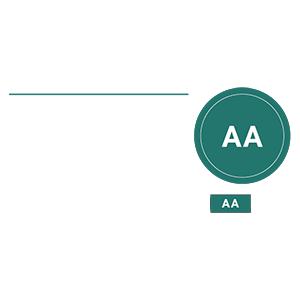
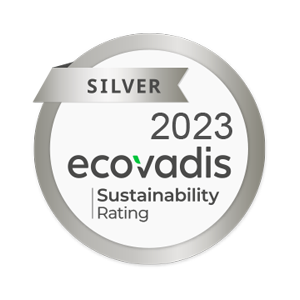
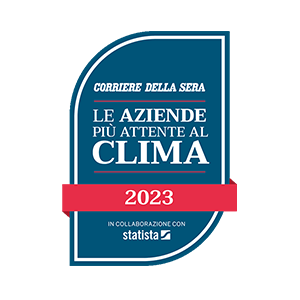
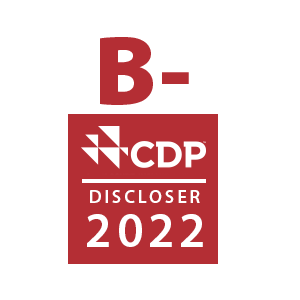
How is your ESG approach promoted and shared within the Group? Has internal sensitivity around these issues grown over the years?
Our ESG approach has evolved over the years and internal awareness has grown, not just through the training and information provided to our colleagues but also, and above all, due to the fact that CAREL is a young company. The average age of our colleagues is low and young people today are interested in these issues and want to work in sustainable companies: in recent years it is us who have often been on the receiving end of questions about how sustainable we are during job interviews. Young people ask what we do in the area of environmental protection and social issues because working in companies that do not care or do not invest in these activities is no longer advantageous or acceptable.
And it is only right that the new generations ask to work in companies that meet certain criteria. The only way to meet these demands and be attractive to talent is to raise the bar in terms of sustainability.
But there is still much to be done and it will be imperative to change our culture in the coming years. For example in the area of transport, given that CAREL is not served by public transport. I am confident that there will also be support at political level in the coming years, for example to promote sustainable transport through the construction of cycle paths.

How much focus is there on ESG issues in our environment and among our customers and suppliers?
Our sector is very male-dominated and it is difficult for us women to integrate, but we know that in sectors where there are women (and I say this with pride) there is more focus on sustainability and social impact.
In such a technical world, I would like to think that at CAREL we will push ourselves to promote our social activities more and more. One day I would like people to care as much about social sustainability as they do about environmental sustainability. It is no excuse to say that being a male world, it is difficult to find female figures in top positions. It is no excuse to say that girls are more suited to humanities subjects than STEM courses. This is not just a school, or a university, or a society problem, it is also our problem and we need to work on it at Governance level.
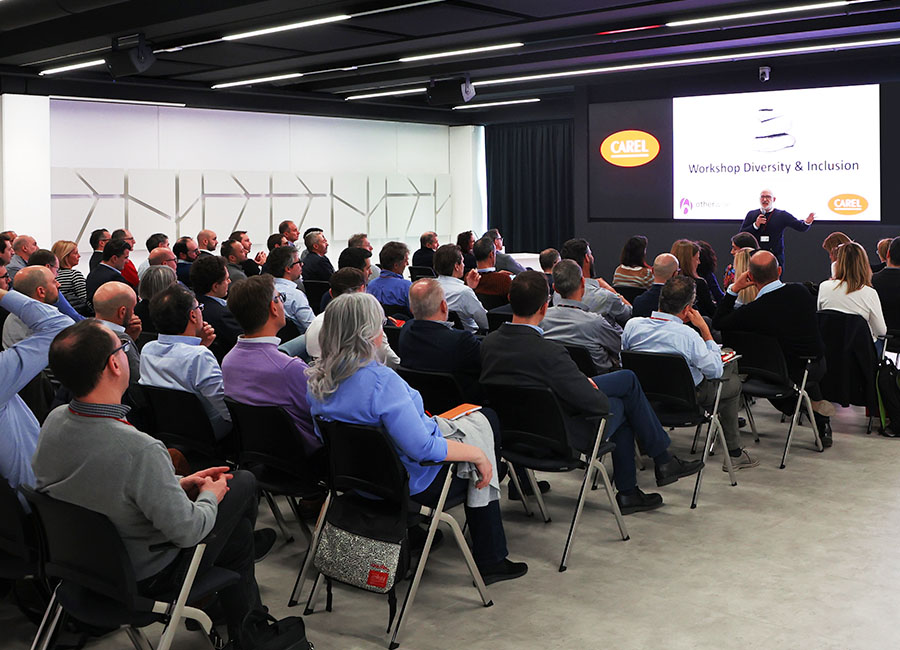 Today there are gender quotas for Boards of Directors and CAREL even has a female majority on its Board: we have broken the glass ceiling, but only in the Board and in production where the majority of employees are female. There is still a whole area, that of middle management, where perhaps women are not yet sufficiently represented.
Today there are gender quotas for Boards of Directors and CAREL even has a female majority on its Board: we have broken the glass ceiling, but only in the Board and in production where the majority of employees are female. There is still a whole area, that of middle management, where perhaps women are not yet sufficiently represented.
We will definitely be working on this in the next sustainability plan. In an Italy where managing children and the elderly is the responsibility of women, it certainly won’t be easy unless we set ourselves specific targets at company level. We will also have to work hard on the issue of maternity but I am sure that we will also address these cultural barriers in our society in the next sustainability plan.
The addition of Kiona (Swedish company) to the CAREL group will certainly help us to study best practices in gender equality management, an area in which Northern Europe is well ahead. Next year we have arranged for the ESG team to visit the various plants and subsidiaries and exchange views and best practices, and we are curious to see how this and other issues are managed around the world. More than half of our colleagues are non-nationals, so we can no longer base our modus operandi on the Italian system. Rather, we need to create a CAREL system, developing standards that respect everyone’s cultures and are attentive to their needs.
